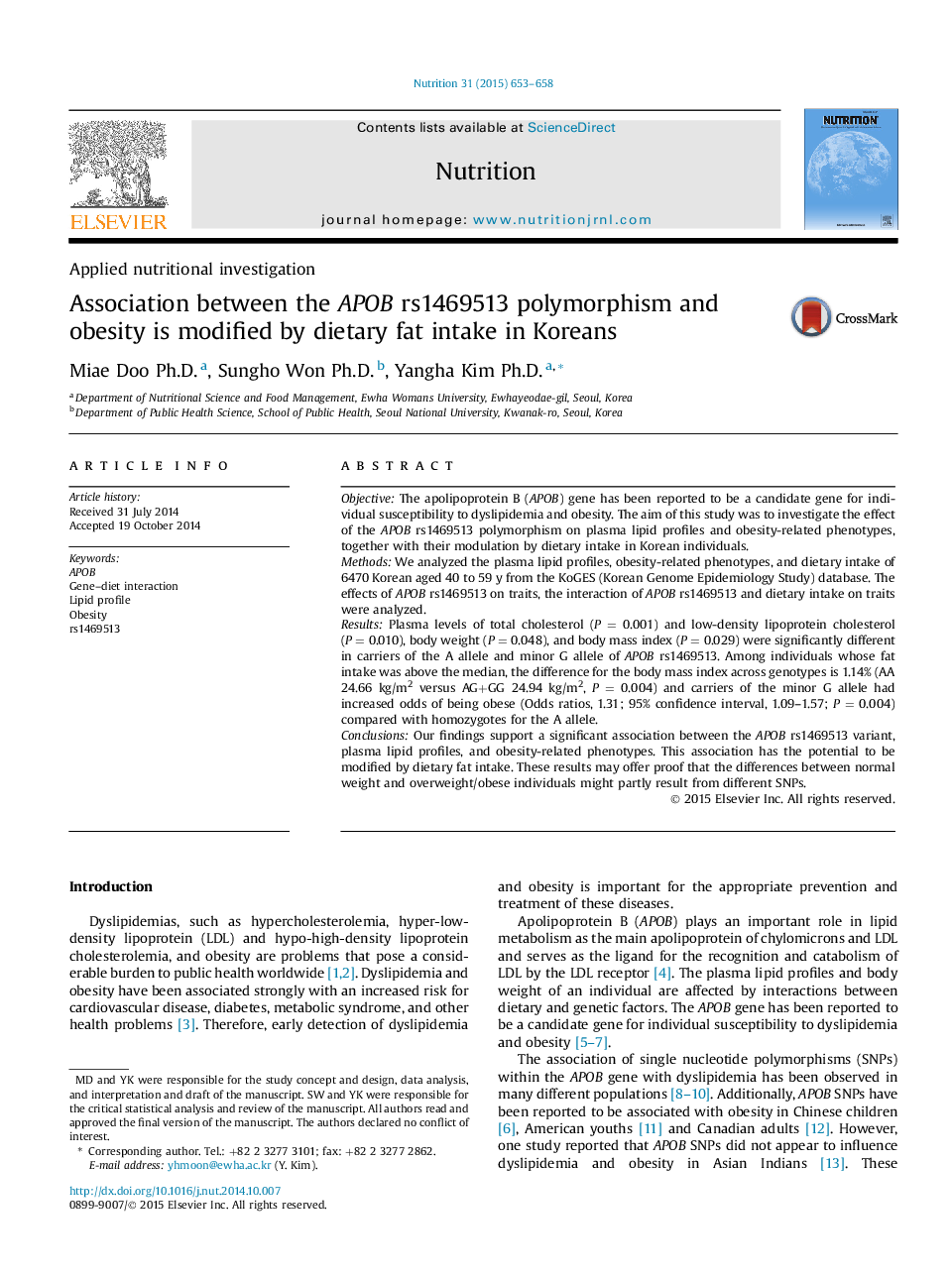| کد مقاله | کد نشریه | سال انتشار | مقاله انگلیسی | نسخه تمام متن |
|---|---|---|---|---|
| 6089062 | 1208535 | 2015 | 6 صفحه PDF | دانلود رایگان |

- Plasma lipid and obesity-related phenotypes differed across apolipoprotein B (APOB) single nucleotide polymorphisms (SNP).
- The difference in body mass index by APOB SNP was 1.14% among individuals with low fat intake.
- In individuals with low fat intake, the odds of being obese differed by APOB SNP.
- Obesity-related phenotypes have affected nutrients as well as genetic variation.
ObjectiveThe apolipoprotein B (APOB) gene has been reported to be a candidate gene for individual susceptibility to dyslipidemia and obesity. The aim of this study was to investigate the effect of the APOB rs1469513 polymorphism on plasma lipid profiles and obesity-related phenotypes, together with their modulation by dietary intake in Korean individuals.MethodsWe analyzed the plasma lipid profiles, obesity-related phenotypes, and dietary intake of 6470 Korean aged 40 to 59 y from the KoGES (Korean Genome Epidemiology Study) database. The effects of APOB rs1469513 on traits, the interaction of APOB rs1469513 and dietary intake on traits were analyzed.ResultsPlasma levels of total cholesterol (P = 0.001) and low-density lipoprotein cholesterol (PÂ =Â 0.010), body weight (P = 0.048), and body mass index (P = 0.029) were significantly different in carriers of the A allele and minor G allele of APOB rs1469513. Among individuals whose fat intake was above the median, the difference for the body mass index across genotypes is 1.14% (AA 24.66 kg/m2 versus AG+GG 24.94 kg/m2, P = 0.004) and carriers of the minor G allele had increased odds of being obese (Odds ratios, 1.31; 95% confidence interval, 1.09-1.57; P = 0.004) compared with homozygotes for the A allele.ConclusionsOur findings support a significant association between the APOB rs1469513 variant, plasma lipid profiles, and obesity-related phenotypes. This association has the potential to be modified by dietary fat intake. These results may offer proof that the differences between normal weight and overweight/obese individuals might partly result from different SNPs.
Journal: Nutrition - Volume 31, Issue 5, May 2015, Pages 653-658